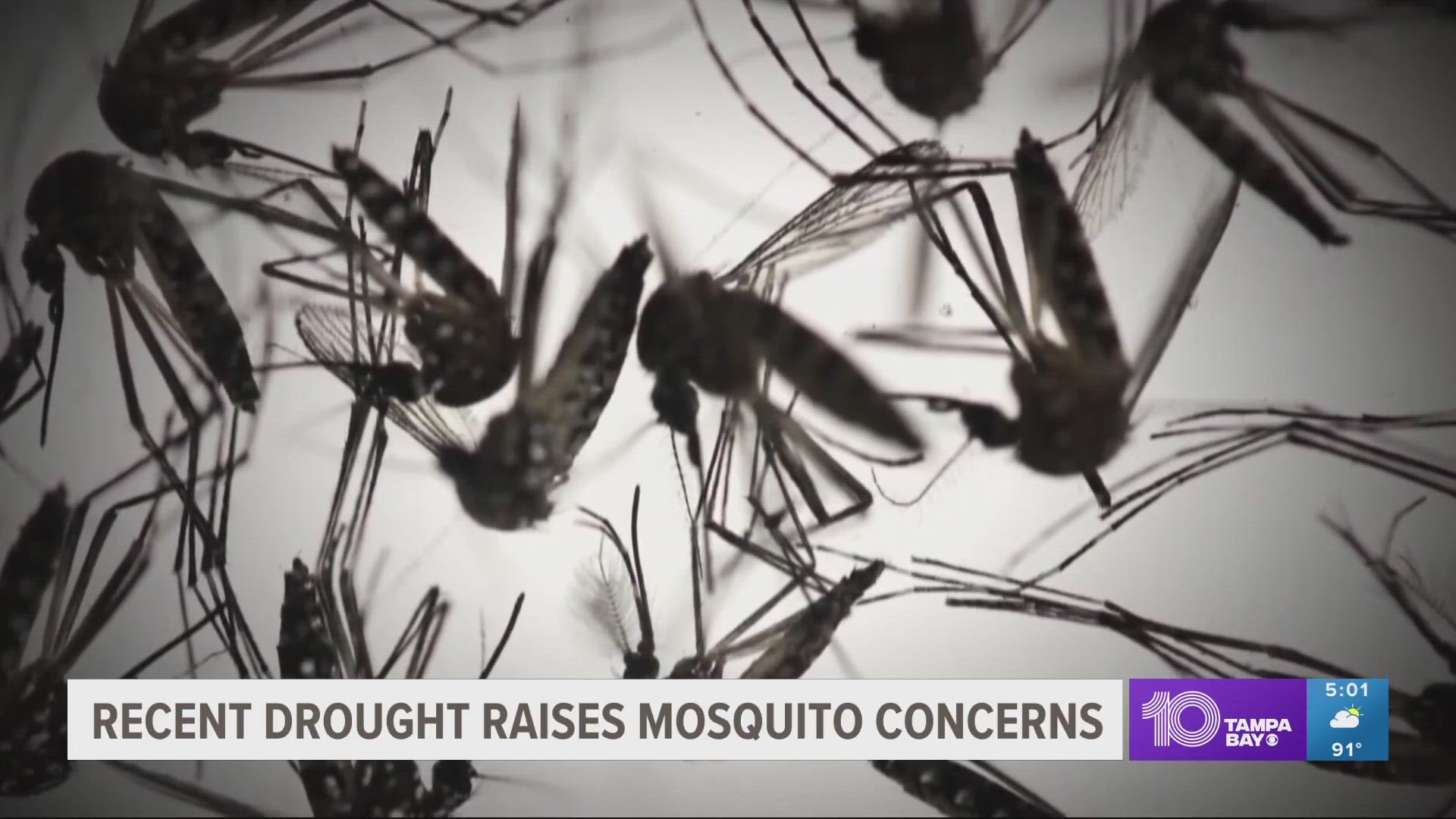CLEARWATER, Fla. — Although it’s been dry recently, the Tampa Bay area has entered it's rainy season, and that means there’s a chance you’ll start seeing a lot more mosquitoes out there soon too.
In Pinellas County, mosquito control workers and the health department teamed up for an awareness campaign, letting people know this could be another rough year when it comes to fending off the flying pests.
The best defense against mosquitoes, they say, is each of us getting rid of standing water where the insects breed.
“When you are getting rid of that breeding habitat – the water that every mosquito needs to complete their life cycle – you are going to help control them before they ever become an adult,” Alissa Berro with Pinellas Mosquito Control said. “And the adult is the problem, right? So, the adult is the one that bite you and can transmit disease and is a nuisance.”
The Health Department is also concerned this year since another drought is upon the Tampa Bay area. Last year, it was the same thing, and they saw a surge in Dengue Fever in parts of the state.
They say it happens because birds and mosquitoes concentrate near limited water sources during drought periods. Mosquitoes bite the birds and then spread out into the community once it starts raining again. The insects then bite humans – spreading diseases like dengue fever, equine encephalitis, Zika and more.
“You want to make sure that your house is secure. That your windows and screens aren't torn or open. You want to cover your skin with long sleeves, shoes, and socks,” Stephen Marlin with the Florida Department of Health in Pinellas County said. “And use a repellent with at least 30% DEET, or if you want something more natural – oil level lemon eucalyptus. “
Mosquito control workers are also keeping an eye on a species only recently flourishing in Florida - Culex lactator. So new here – it’s still unclear if it’s a threat to humans.
"And we may or may not know whether they can vector diseases here," Berro said.
Mosquito control workers warn against complacency. The rain, they say, is coning and the mosquitoes will follow. The health department says it will identify cases of disease as quickly as possible.
“Absolutely. As soon as we see something of concern, especially if it is locally acquired, we jump into action and partner with mosquito control and with local providers,” Marlin said.
It’s estimated there are about 90 different mosquito species in Florida. Of those, about 20 are considered a health threat because of their ability to transmit viruses to humans.

